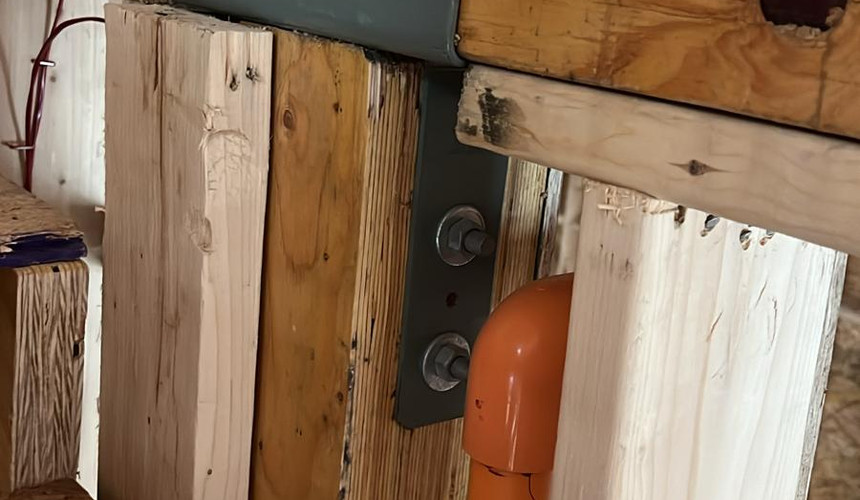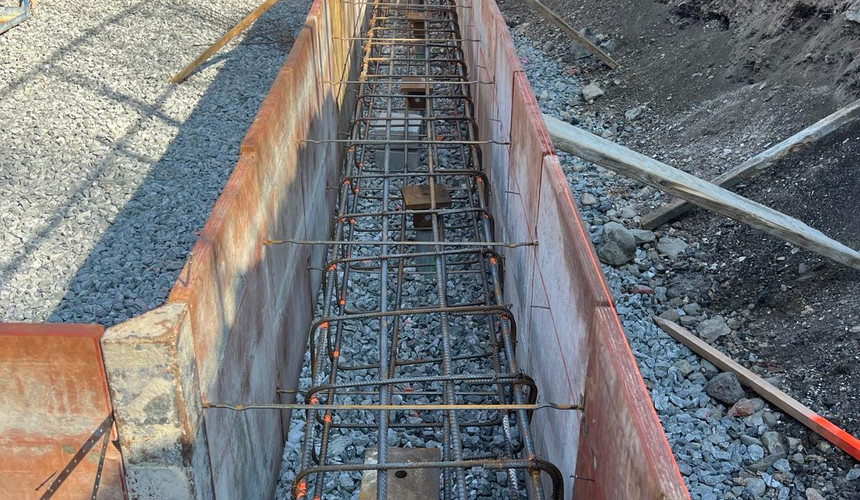Whether it's a dream home, a high-rise office building, or a major renovation, a successful construction project relies on a strong foundation. One of the key players in ensuring the structural integrity, safety, and longevity of any building is a qualified structural engineer.
This article explores what structural engineers do and why choosing the right one is vital for everyone involved in the construction process.

What is the Role of the Structural Engineer in the Construction Process
Design and Analysis
Understanding the Vision: Structural engineers begin by thoroughly reviewing architectural plans and understanding the project's overall vision and goals. They analyze factors like building size, function, and intended use to define the necessary structural elements.
Designing the Building's "Skeleton": They design the building's load-bearing elements, including columns, beams, and trusses. These elements transfer the building's weight safely to the foundation and withstand various loads like wind, snow, and earthquakes.
Material Selection and Optimization: Structural engineers choose appropriate materials (e.g., wood, steel, concrete) based on their strength, weight, cost, and environmental impact. They strive for efficient material usage to optimize cost while maintaining structural integrity.
Creating an Optimal Foundation: Structural Engineers play a crucial role in designing the foundation. Their role involves designing foundations that can robustly support a building's weight and all the loads impacting the structure to the ground such as wind, snow, and endure ground movements. In pursuit of this, they meticulously analyze soil conditions and determine the most suitable foundation type, whether it be strip foundations, isolated footings, Piles, etc.
Collaboration and Communication
Partnering with Architects: They work closely with architects to ensure the structural design seamlessly integrates with the building's aesthetic and functional requirements. This ensures the final structure remains visually appealing and fulfills its intended purpose.
Coordinating with Contractors: They collaborate with contractors to translate designs into reality. This involves providing clear technical documentation, addressing constructability concerns, and facilitating seamless communication throughout the construction process.
Liaising with Other Stakeholders: They may also interact with various stakeholders, including consultants, building inspectors, and permitting agencies, ensuring everyone is informed and the project adheres to necessary regulations.
Site Supervision and Quality Assurance
Verifying Design Implementation: Structural engineers periodically visit construction sites to verify that their designs are being followed accurately. This ensures the building's structural integrity and avoids potential safety hazards or code violations.
Problem-Solving and Adjustments: They address unforeseen challenges that may arise during construction. This might involve modifying designs or suggesting alternative materials while maintaining structural safety and project goals.
Ensuring Building Code Compliance: Structural engineers closely collaborate with the contractor to make sure the approved plans are followed, which guarantees the building meets city regulations.
Long-Term Expertise
Maintenance and Reinforcement Recommendations: Structural engineers can offer valuable insights and recommendations for ongoing maintenance and potential future repairs to maintain the building's structural integrity and extend its lifespan.
Post-Construction Consulting: They can be valuable assets for post-construction issues, analyzing structural concerns and providing expert advice for repairs or modifications.
7 Benefits of Contracting a Structural Engineer for Your Construction Project
Safety and Structural Integrity: Their top priority is designing structures that prioritize safety and withstand foreseeable loads. They make buildings resistant to natural disasters and mitigate the risk of failures and collapses.
Cost Savings and Resource Efficiency: Optimized designs help avoid over-engineering and unnecessary costs. They ensure the right selection of materials to lower costs while maintaining quality standards.
Enhanced Functionality and Aesthetics: Structural engineers work with architects to balance structural design with aesthetic goals, making both safety and architectural vision a reality.
Risk Mitigation: Construction projects inherently carry risks, and unforeseen challenges can arise at any stage. Structural engineers are adept at identifying potential risks early in the design phase, allowing architects and property owners to implement proactive measures. This foresight minimizes the likelihood of setbacks during construction, ensuring a smoother and more efficient project timeline.
Clear Communication and Plans: Comprehensive and well-written structural drawings and blueprints facilitate clear communication with contractors for smoother construction execution.
Peace of mind: The confidence of knowing that you have chosen a professional with the experience to design the structure of your construction project. By integrating a trusted structural engineer into the project, you ensure a long-term investment in the durability of your creations.
Increased Property Value: A well-designed structure with structural integrity adds resale value to a home or commercial building.
Choosing a Trusted Structural Engineer
When seeking a structural engineer, always look for:
Experience: Find an engineer with expertise in projects similar to your scope.
Clear Communication: Seek professionals who explain complex concepts clearly and collaborate effectively.
Conclusion
Incorporating a skilled structural engineer into your construction team ensures a building stands the test of time, providing safety, longevity, and peace of mind. Architects, homeowners, and contractors who prioritize structural expertise ultimately create more successful and enduring projects.
We at Spruhan Engineering can make your project in Greater Boston become a reality! Contact us today for a consultation via email at edmond@spruhaneng.com or give us a call at +1 (617) 816-0722. We're here to help!












Comentários